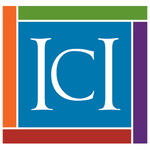Think College at the Institute for Community Inclusion at UMass Boston receives $10 Million Grant on Postsecondary Education for Students with Intellectual Disability
PRESS RELEASE
For immediate release: October 3, 2025
Think College at the Institute for Community Inclusion at UMass Boston receives $10 Million Grant on Postsecondary Education for Students with Intellectual Disability
Boston, MA — October 3, 2025 — The US Department of Education, Office of Postsecondary Education, has awarded Think College at the Institute for Community Inclusion, University of Massachusetts Boston, a 5-year, $10 million cooperative agreement to serve as the National Coordinating Center for the Transition and Postsecondary Programs for Students with Intellectual Disabilities (TPSID) model demonstration grantees offering postsecondary education programs for college students with intellectual disability.
The National Coordinating Center (NCC) will provide support for TPSID and non-TPSID programs on program development, evaluation, and continuous improvement. The NCC will also:
- continue to serve as a national technical assistance entity for K–12 and higher education professionals, families, and students
- translate and disseminate knowledge from TPSID data and best practices through our broad dissemination network
- continue to help ensure accountability, quality, and sustainability by coordinating efforts related to growing program accreditation
Think College will advance this important work over the next five years in partnership with the Association of Higher Education and Disability (AHEAD), Inclusive Postsecondary Education (IPSE) Association, Taishoff Center for Inclusive Higher Education at Syracuse University, Center for Disability and Education Warner School at University of Rochester, and in collaboration with the Inclusive Higher Education Accreditation Council (IHEAC).
Meg Grigal, Principal Investigator for the project, states “We are grateful for Congress and the Department of Education’s continued investment in expanding and improving higher education options for students with intellectual disability. College has been a game changer for these students, leading to better jobs, greater independence, and, ultimately, happier lives. The NCC will continue to document, support, and help grow our knowledge of the impact college has on the lives of people with intellectual disability. We are honored and proud to continue to serve as the National Coordinating Center for this innovative and incredibly successful program.”
For more information about this new project and other activities of Think College, contact Meg Grigal at Meg.Grigal@umb.edu or visit www.thinkcollege.net.
Quinn Barbour/Institute for Community Inclusion
- Phone: 617-287-4309 (office) / 857-271-6617 (mobile)
- Email: Quinn.Barbour@umb.edu
- Website: www.communityinclusion.org
